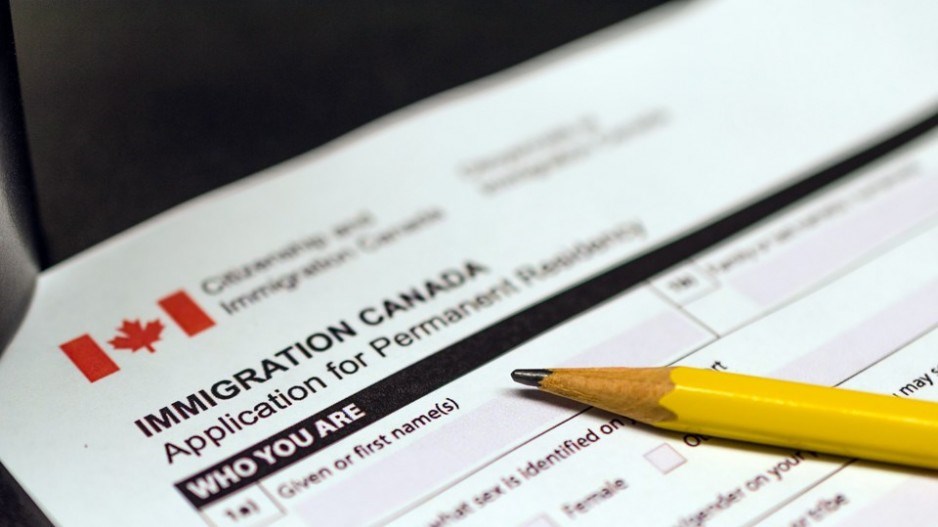In early July, immigration was identified by nine per cent of Canadians as the most important issue facing the country. Concerns about immigration reached double digits among Canadians who are members of Generation Z (16 per cent), Conservative Party voters in this year’s federal election (14 per cent), Quebecers (10 per cent) and those in the middle income bracket (also 10 per cent).
The issue is gaining prominence among seemingly disjointed groups of would-be voters. The federal Conservatives performed poorly in Quebec but are aching to win back the middle-class vote and solidify the connection established with young Canadians on issues such as housing. It was not surprising, then, to see Conservative leader Pierre Poilievre recently call for “very hard caps” on the number of immigrants allowed into Canada.
At first glance, our latest look at the perceptions of Canadians on immigration shows little change from our previous survey in 2024. The country can be split in two camps: Those who believe immigration is having a “mostly positive” effect in the country (43 per cent, up one point) and those who think it has been “mostly negative” (39 per cent, down five points).
Last year, almost half of Canadians (46 per cent) expressed a desire for the number of legal immigrants who are allowed to relocate in Canada to decrease. Plenty has happened since then, including provincial initiatives to recognize the credentials of foreign-trained professionals, heightened concerns about economic growth, a discussion about the impact of tariffs and trade during the second term of U.S. President Donald Trump and a federal election.
In 2025, 41 per cent of Canadians endorse a reduction in legal immigration. About a third would retain the current levels, and 16 per cent advocate for an increase.
The notion that the country is “full” resonates vividly with two specific groups: Half of Canadians aged 55 and over (51 per cent) and half of Canadians of European descent (50 per cent) think Canada should admit fewer legal immigrants now than in years past.
Two in five Canadians aged 35 to 54 (40 per cent) are also in favour of a reduction in legal immigration. This group may be experiencing the health care and education systems through their parents or children, developing a different opinion on what is causing current service shortfalls or challenges. Among Canadians aged 18 to 34, similar proportions of respondents call for a decrease (30 per cent) or an increase (26 per cent).
In spite of the anti-American sentiment Trump’s statements have provoked in Canada, the U.S. “melting pot” approach to immigration has a four-point lead over Canada’s mosaic as the policy our country should adhere to (44 per cent to 40 per cent).
It is remarkable to see the mosaic lagging in public support after practically a decade of Liberal Party governments in Ottawa.
One could assume that newcomers to Canada and their descendants would be “all in” on the mosaic, but the numbers tell a different story. Support is highest among Canadians of East Asian origin (46 per cent), and drops among those whose heritage is South Asian (43 per cent), European (42 per cent) and Indigenous (35 per cent).
More than two-thirds of Canadians (68 per cent) think the hard work and talent of immigrants makes Canada better. An evident regional divide persists. More than three-quarters of British Columbia residents agree. The proportions are lower in Ontario (68 per cent), Quebec (also 68 per cent) and Atlantic Canada (54 per cent, down three points).
These last two questions outline the challenging nature of immigration as a policy concern for the government and the opposition. There is some animosity on the issue of amalgamation, but most residents—especially those in the west—continue to express positive feelings about the contributions of newcomers. A reduction in legal immigration is still preferred, but by a margin that is lower than in 2024, well before “nation-building” became the mantra of the federal government.
Mario Canseco is president of Research Co.
Results are based on an online study conducted from July 26-28, 2025, among 1,000 adults in Canada. The data has been statistically weighted according to Canadian census figures for age, gender and region in Canada. The margin of error is plus or minus 3.1 percentage points, 19 times out of 20.




